
Francisco de Orellana Bejarano Pizarro y Torres de Altamirano was a Spanish explorer and conquistador. He completed the first known navigation of the entire length of the Amazon River, initially named "Rio de Orellana" until reports of skirmishes that included the women warriors of the Tapuyas tribe brought about the name change. He also founded the city of Guayaquil in what is now Ecuador.

El Dorado, originally El Hombre Dorado or El Rey Dorado, was the term used by the Spanish in the 16th century to describe a mythical tribal chief (zipa) of the Muisca people, an indigenous people of the Altiplano Cundiboyacense of Colombia, who as an initiation rite, covered himself with gold dust and submerged in Lake Guatavita. The legends surrounding El Dorado changed over time, as it went from being a man, to a city, to a kingdom, and then finally to an empire.

The German colonization of the Americas consisted of German Venezuela, St. Thomas and Crab Island in the 16th and 17th centuries.

Coro, historically known as Neu-Augsburg, is the capital of Falcón State and the second oldest city of Venezuela. It was founded on July 26, 1527, by Juan de Ampíes as Santa Ana de Coro. It is established at the south of the Paraguaná Peninsula in a coastal plain, flanked by the Médanos de Coro National Park to the north and the Sierra de Coro to the south, at a few kilometers from its port in the Caribbean Sea at a point equidistant between the Ensenada de La Vela and Golfete de Coro.
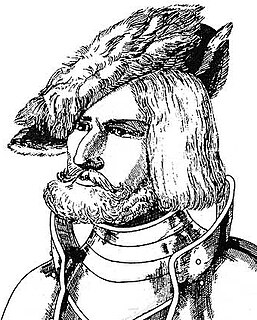
Nikolaus Federmann was a German adventurer and conquistador in what is modern-day Venezuela and Colombia. He is a significant figure in the history of Klein-Venedig (1528–1546), the concession of Venezuela Province that Charles I of Spain granted to the Welser banking family and the foundation of Santafe de Bogotá.
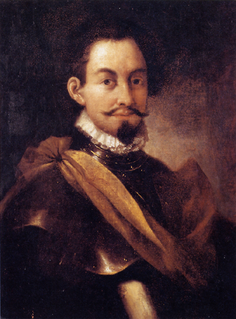
Philipp von Hutten was a German adventurer and an early European explorer of Venezuela. He is a significant figure in the history of Klein-Venedig, the concession of Venezuela Province to the Welser banking family by Charles V, Holy Roman Emperor and King of Spain.
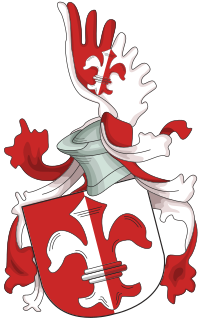
Welser was a German banking and merchant family, originally a patrician family based in Augsburg and Nuremberg, that rose to great prominence in international high finance in the 16th century as bankers to the Habsburgs and financiers of Charles V, Holy Roman Emperor. Along with the Fugger family, the Welser family controlled large sectors of the European economy, and accumulated enormous wealth through trade and the German colonization of the Americas, including slave trade. The family received colonial rights of the Province of Venezuela from Charles V, who was also King of Spain, in 1528, becoming owners and rulers of the South American colony of Klein-Venedig, but were deprived of their rule in 1546. Philippine Welser (1527–1580), famed for both her learning and her beauty, was married to Archduke Ferdinand, Emperor Ferdinand I's son.

Georg von Speyer was a German conquistador in New Granada and Venezuela. His birth name was Georg Hohermuth but he chose to call himself after his place of birth. He is sometimes referred to as Jorge de Espira, his name in Spanish. He is a significant figure in the history of Klein-Venedig, the concession of Venezuela Province to the Welser banking family by Charles I of Spain.

Ambrosius Ehinger, also Dalfinger, Thalfinger, was a German conquistador and the first governor of the Welser concession, also known as “Little Venice” (Klein-Venedig), in northern South America, now Venezuela.

Klein-Venedig or Welserland was the most significant territory of the German colonization of the Americas, from 1528 to 1546, in which the Welser banking and patrician family of the Free Imperial Cities of Augsburg and Nuremberg obtained colonial rights in the Province of Venezuela in return for debts owed by the Holy Roman Emperor Charles V, who was also King of Spain. In 1528, Charles V issued a charter by which the Welsers possessed the rights to explore, rule and colonize the area, also with the motivation of searching for the legendary golden city of El Dorado. The venture was led at first by Ambrosius Ehinger, who founded Maracaibo in 1529. After the deaths of Ehinger (1533) and then his successor Georg von Speyer (1540), Philipp von Hutten continued exploration in the interior, and in his absence from the capital of the province the crown of Spain claimed the right to appoint the governor. On Hutten's return to the capital, Santa Ana de Coro, in 1546, the Spanish governor Juan de Carvajal had von Hutten and Bartholomeus VI. Welser executed. King Charles V revoked Welser's charter.
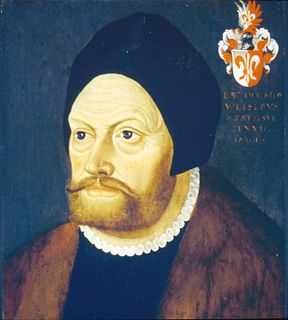
Prince Bartholomeus Welser was a German banker. In 1528 he signed an agreement with Charles V, emperor of the Holy Roman Empire, granting a concession in Venezuela Province, which became Klein-Venedig until the concession was revoked in 1546.
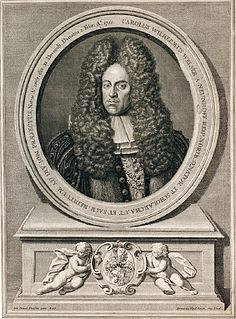
Carl Wilhelm Welser von Neunhof, was a mayor of Nuremberg.
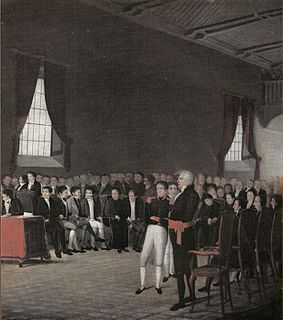
The history of Venezuela reflects events in areas of the Americas colonized by Spain starting 1522; amid resistance from indigenous peoples, led by Native caciques, such as Guaicaipuro and Tamanaco. However, in the Andean region of western Venezuela, complex Andean civilization of the Timoto-Cuica people flourished before European contact. In 1811, it became one of the first Spanish-American colonies to declare independence, which was not securely established until 1821, when Venezuela was a department of the federal republic of Gran Colombia. It gained full independence as a separate country in 1830. During the 19th century, Venezuela suffered political turmoil and autocracy, remaining dominated by regional caudillos until the mid-20th century. Since 1958, the country has had a series of democratic governments. Economic shocks in the 1980s and 1990s led to several political crises, including the deadly Caracazo riots of 1989, two attempted coups in 1992, and the impeachment of President Carlos Andrés Pérez in 1993. A collapse in confidence in the existing parties saw the 1998 election of former coup-involved career officer Hugo Chávez and the launch of the Bolivarian Revolution, beginning with a 1999 Constituent Assembly to write a new Constitution of Venezuela. This new constitution officially changed the name of the country to República Bolivariana de Venezuela. Venezuela history month is in march
German Venezuelans are Venezuelan citizens who descend from Germans or German people with Venezuelan citizenship. Most of them live in Caracas, Maracaibo, Valencia, Colonia agrícola de Turén, El Jarillo, and Colonia Tovar where a small-reduced and decreasing minority of people speak the Colonia Tovar dialect, a German-derived dialect from their ancestry, and the Spanish language.
Spanish expeditions led by Columbus and Alonso de Ojeda reached the coast of present-day Venezuela in 1498 and 1499. The first colonial exploitation was of the pearl oysters of the "Pearl Islands". Spain established its first permanent South American settlement in the present-day city of Cumaná in 1502, and in 1577 Caracas became the capital of the Province of Venezuela. There was also for a few years a German colony at Klein-Venedig.
Bartholomeus VI. Welser was a member of the Welser banking family, which had acquired the colonial rights to Venezuela Province in 1528 and created Klein-Venedig. He was the son of Bartholomeus V. Welser.

Spain–Venezuelan relations are the bilateral relations between the Kingdom of Spain and the Bolivarian Republic of Venezuela. Both nations are members of the Association of Spanish Language Academies and the Organization of Ibero-American States.

The Guayupe are an Arawak-speaking indigenous group of people in modern-day Colombia. They inhabit the westernmost parts of the department of Meta. At the time of the Spanish conquest, more than 250,000 Guayupe were living in large parts of Meta.
Baltasar Maldonado, also written as Baltazar Maldonado, was a Spanish conquistador who first served under Gonzalo Jiménez de Quesada, and later in the army of Hernán Pérez de Quesada in the Spanish conquest of the Muisca.

La Vela de Coro is the port of Coro, Venezuela. Coro and its port form a conurbation, although Coro is in the municipality of Miranda and La Vela is in a separate municipality, Colina. The twin settlements were founded by the Spanish in the 16th century.
















